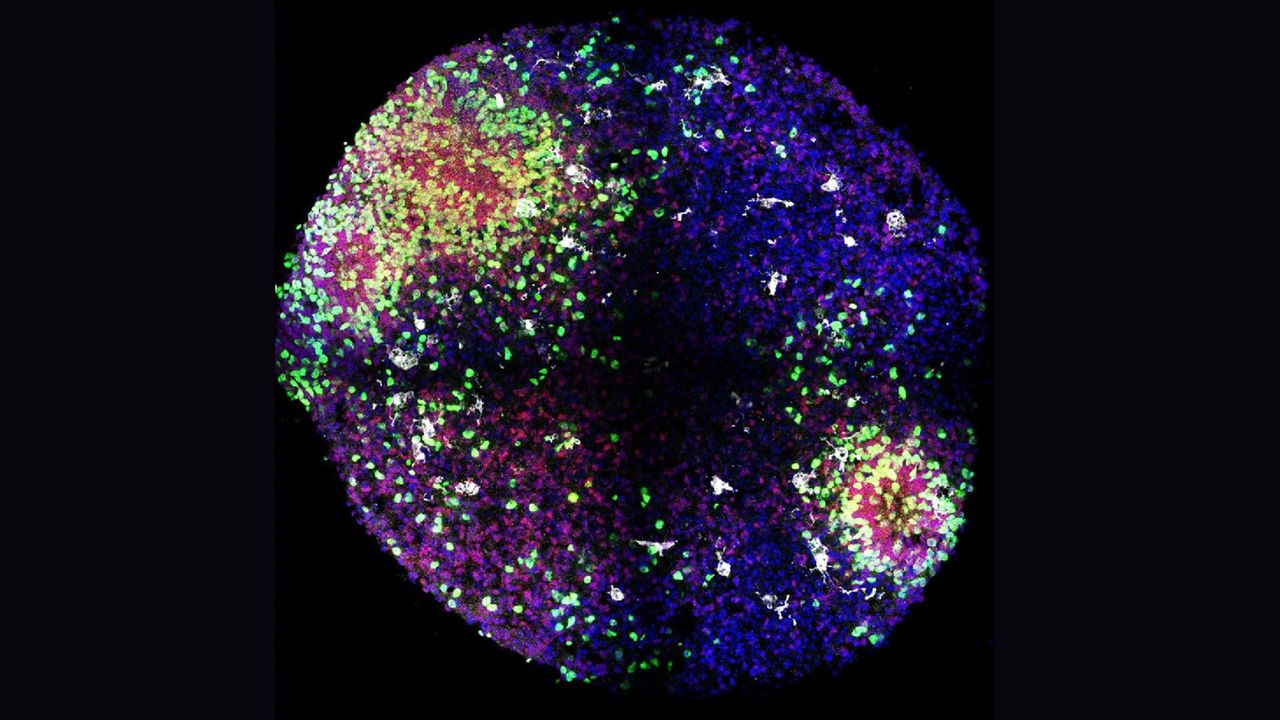Now Reading: Minibrains’ Unlock Insights into Brain Cell Formation During Pregnancy
-
01
Minibrains’ Unlock Insights into Brain Cell Formation During Pregnancy
Minibrains’ Unlock Insights into Brain Cell Formation During Pregnancy

Speedy summary
- New research suggests immune cells in the human brain play a critical role in brain development during pregnancy, triggering proliferation of nerve cells called inhibitory interneurons.
- Interneurons relay signals and regulate brain activity through GABA,an inhibitory chemical messenger. Disorders such as epilepsy, autism, and schizophrenia are linked to problems with these neurons.
- The human cortex has more than twice the number of interneurons compared to the mouse cortex; researchers believe this may be unique to humans.
- Using miniature 3D models (organoids) grown from stem cells, scientists uncovered microglia-produced insulin-like growth factor 1 (IGF1) was key for driving interneuron proliferation during early development.
- IGF1-related processes did not replicate when conducted using mouse brains, suggesting this mechanism for increased interneurons might potentially be specific to humans and potentially tied to advanced cognitive abilities via evolution.
- Organoids provide valuable insights but cannot yet replicate late-stage brain development or complete circuit-level activity.
!Image
Scientists grew organoids, or tiny models of the brain, to learn more about how the organ forms in the womb.
(Image credit: Yu, D., Jain, S., Wangzhou et al. Nature)
!Image
Examples of organoids showing IGF1 driving cell proliferation.
(Image credit: Yu et al.; Nature)
Indian Opinion Analysis
The study reflects significant advancements in developmental neuroscience while spotlighting potential evolutionary hallmarks that distinguish human cognitive complexity. India’s extensive scientific community could leverage these findings by focusing on neurology-specific collaborations across borders. Such explorations could enhance understanding not only within academic fields but also within healthcare systems-especially regarding disorders tied to dysfunctional interneurons like epilepsy or autism which affect millions worldwide.
Leveraging cutting-edge fields like stem cell research and bioengineering tools such as “brain organoids,” India might prioritize investment into laboratories capable of replicating similar studies domestically. Additionally, public health-focused efforts stemming from increased knowledge about developmental neurologic risks during pregnancy-such as maternal infections impacting neural trajectories-could greatly benefit from amplifying research directly applicable within India’s diverse population contexts.
Aligning with global evolution-oriented discoveries can cement India’s growing reputation as a leader both technically innovating cross-discipline solutions locally-expanded output























